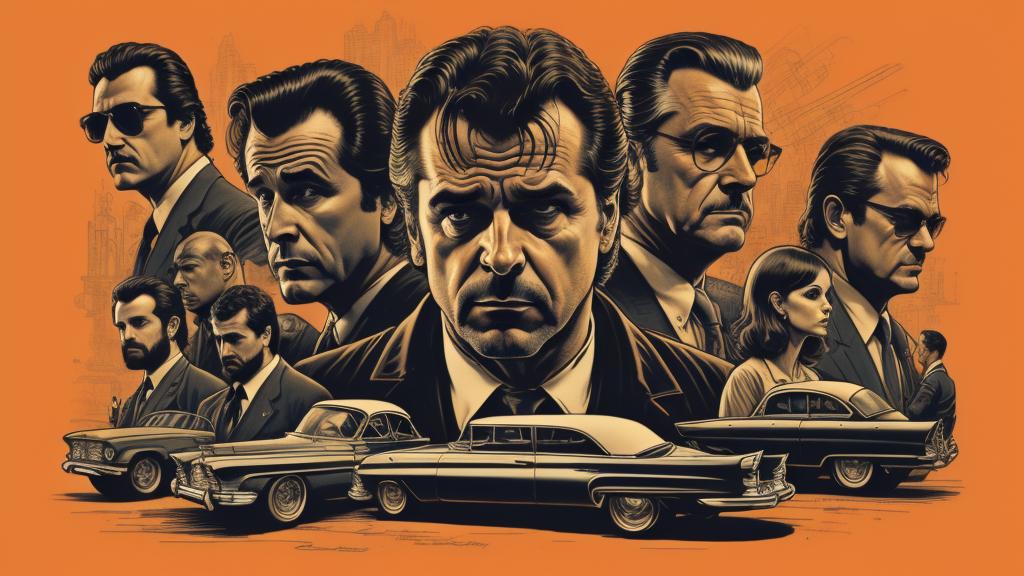The musical landscape of cinema is largely dominated by non-diegetic scores, the background music that accentuates emotions and narrative arcs. However, diegetic music—music that is part of the movie’s world and heard by the characters—often plays a pivotal role that goes unnoticed by many viewers and critics alike. This article delves into the nuanced world of diegetic music, shedding light on its impact, complexities, and the masterful ways it’s been employed in film history.
One can’t discuss diegetic music without paying homage to Quentin Tarantino. With movies like 'Pulp Fiction' and 'Reservoir Dogs,' Tarantino proves to be a maestro of diegetic soundtracks. For example, in 'Reservoir Dogs,' the scene where Mr. Blonde tortures a hostage while dancing to Stealers Wheel’s 'Stuck in the Middle with You' is unforgettable. The song’s upbeat tempo starkly contrasts with the violent visuals, creating an ironic and unsettling experience that’s hard to shake off.
Diegetic music is particularly fascinating because it adds layers of realism to a film. Imagine a bustling bar scene without the background chatter, clinking glasses, and the jukebox playing in the corner—it would feel hollow and less authentic. Directors like Martin Scorsese masterfully use diegetic music to contribute to world-building. Scorsese’s 'Goodfellas' is an excellent example, where every track seems to be a fitting part of the movie’s gritty milieu, enhancing the time periods and emotional depths of scenes.
One often overlooked aspect is how diegetic music can serve as a narrative device. In 'Baby Driver,' Edgar Wright uses diegetic music to embody the protagonist’s persona. Baby, a getaway driver with tinnitus, constantly listens to music to drown out the ringing in his ears. The movie’s action sequences are meticulously choreographed to the diegetic soundtrack, making the audience feel as if they’re riding shotgun with Baby.
Unlike non-diegetic music that can be universally decided in post-production, diegetic music requires meticulous pre-planning. Directors and music supervisors must secure rights, choose appropriate tracks, and ensure they fit seamlessly within scenes. For instance, the usage of Queen’s 'Bohemian Rhapsody' in 'Wayne’s World' was more than just a musical choice; it became iconic, defining the film’s quirky and endearing nature.
Diegetic music doesn’t always have to be popular tracks; it can also include original compositions performed by characters within the film. In 'Once,' Glen Hansard and Markéta Irglová perform their own songs, making the music an intrinsic part of the narrative. The film’s authenticity and raw emotion are amplified by the diegetic performances, as the songs capture the characters’ personal journeys.
One critical aspect to remember is that the effectiveness of diegetic music often hinges on its subtlety. When used sparingly and thoughtfully, it can create a profound impact without overshadowing the dialogue or action. Consider the haunting lullaby in 'Pan’s Labyrinth,' which enriches the dark, fantastical milieu without breaking the viewer’s immersion.
In horror films, diegetic music can heighten the sense of dread and anticipation. John Carpenter’s 'Halloween' uses a diegetic piano that Michael Myers plays; the tune becomes synonymous with impending terror. This clever use of diegetic sound creates a palpable tension that would have been impossible with just a non-diegetic score.
Television shows are also catching on to the power of diegetic music. 'Stranger Things' frequently uses era-appropriate songs to transport viewers back to the 1980s. Take, for example, the pivotal scene where Eleven contacts Mike using 'Should I Stay or Should I Go' by The Clash. The song isn’t just background music; it’s a lifeline between characters, deeply embedded in the storyline.
In conclusion, diegetic music is a potent, versatile tool in the filmmaker’s arsenal, offering a unique blend of immersion and realism. It requires foresight, creative ingenuity, and meticulous planning to execute effectively. While non-diegetic scores may often steal the limelight, diegetic music remains an unsung hero, subtly but powerfully enriching the cinematic experience for audiences worldwide.
The overlooked art of diegetic music in films

